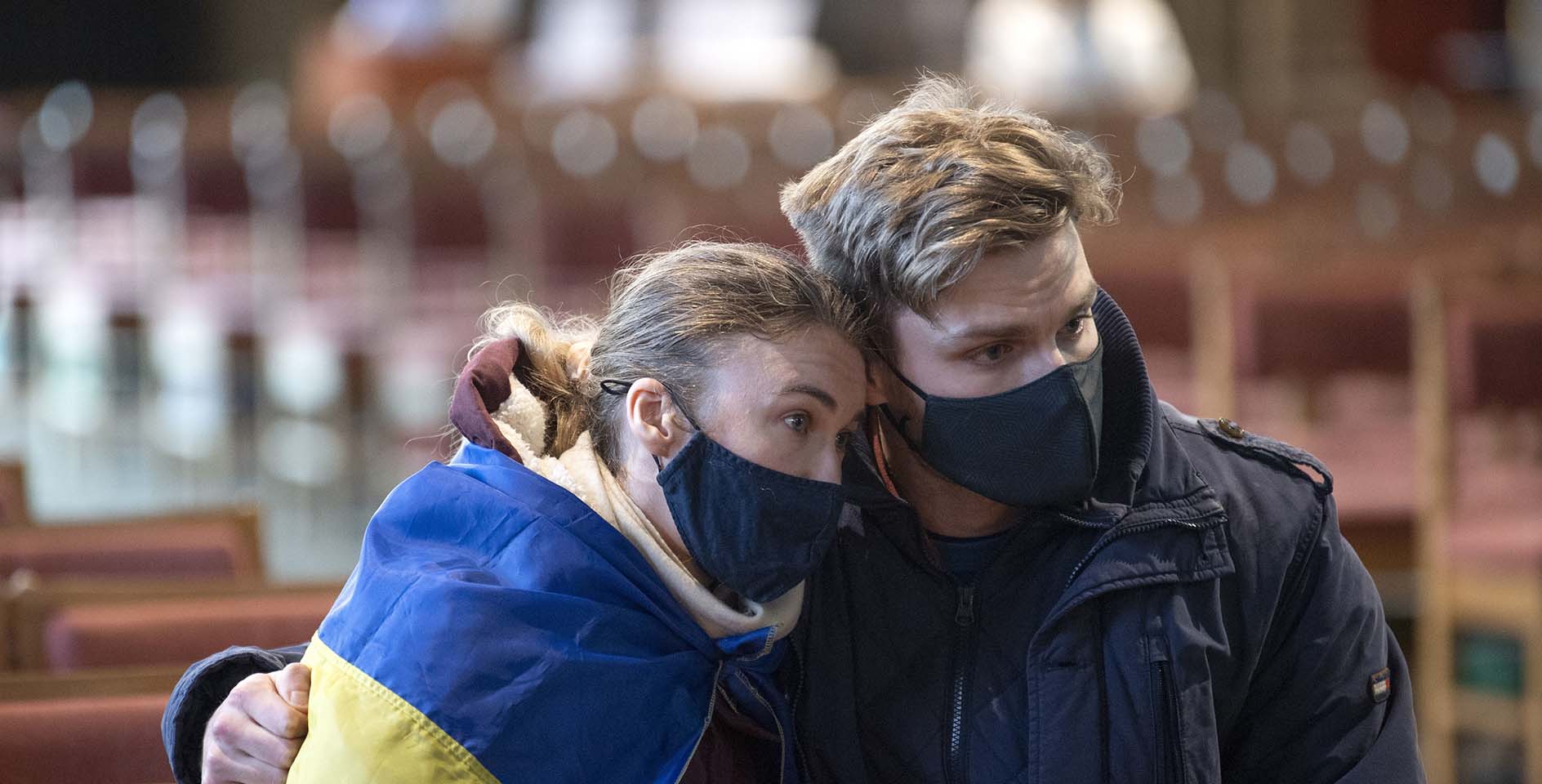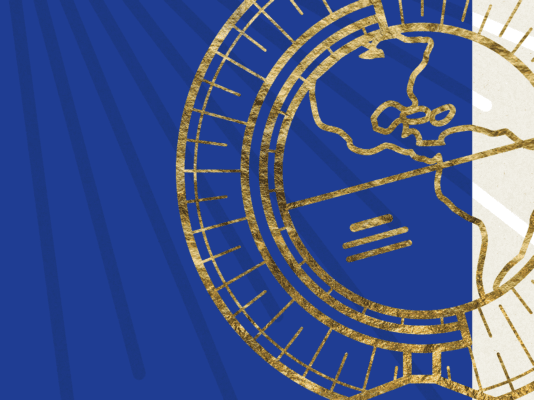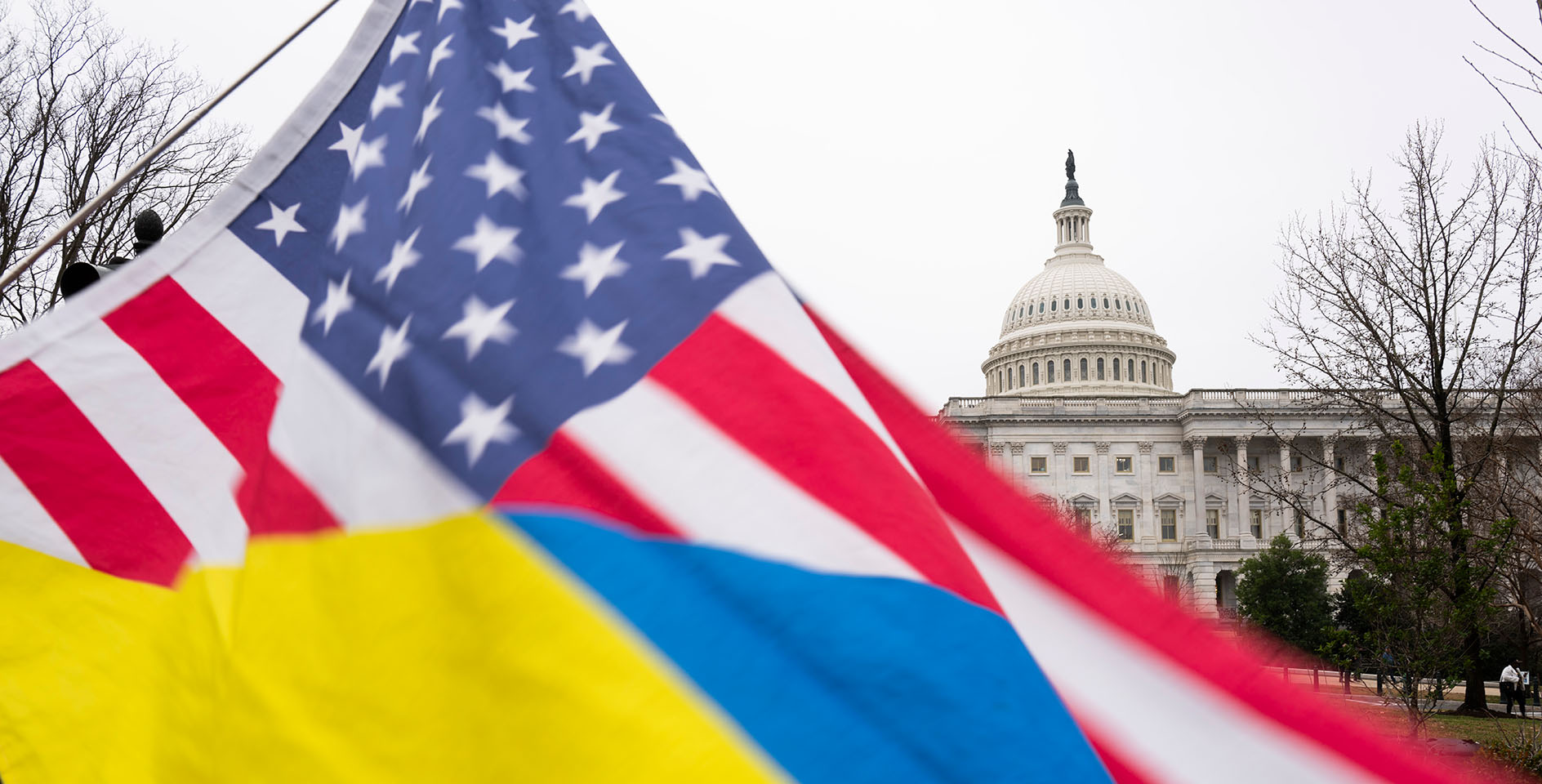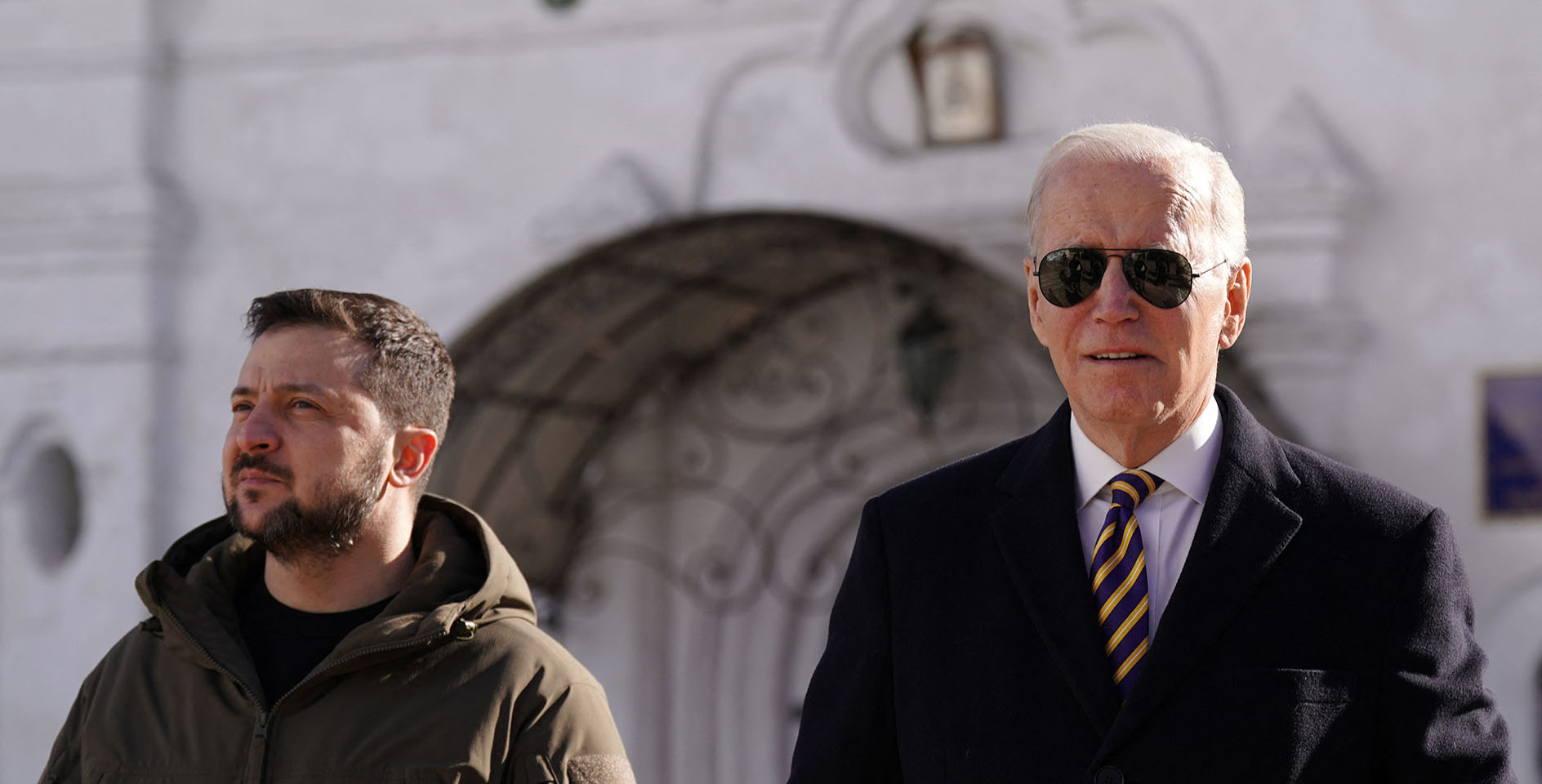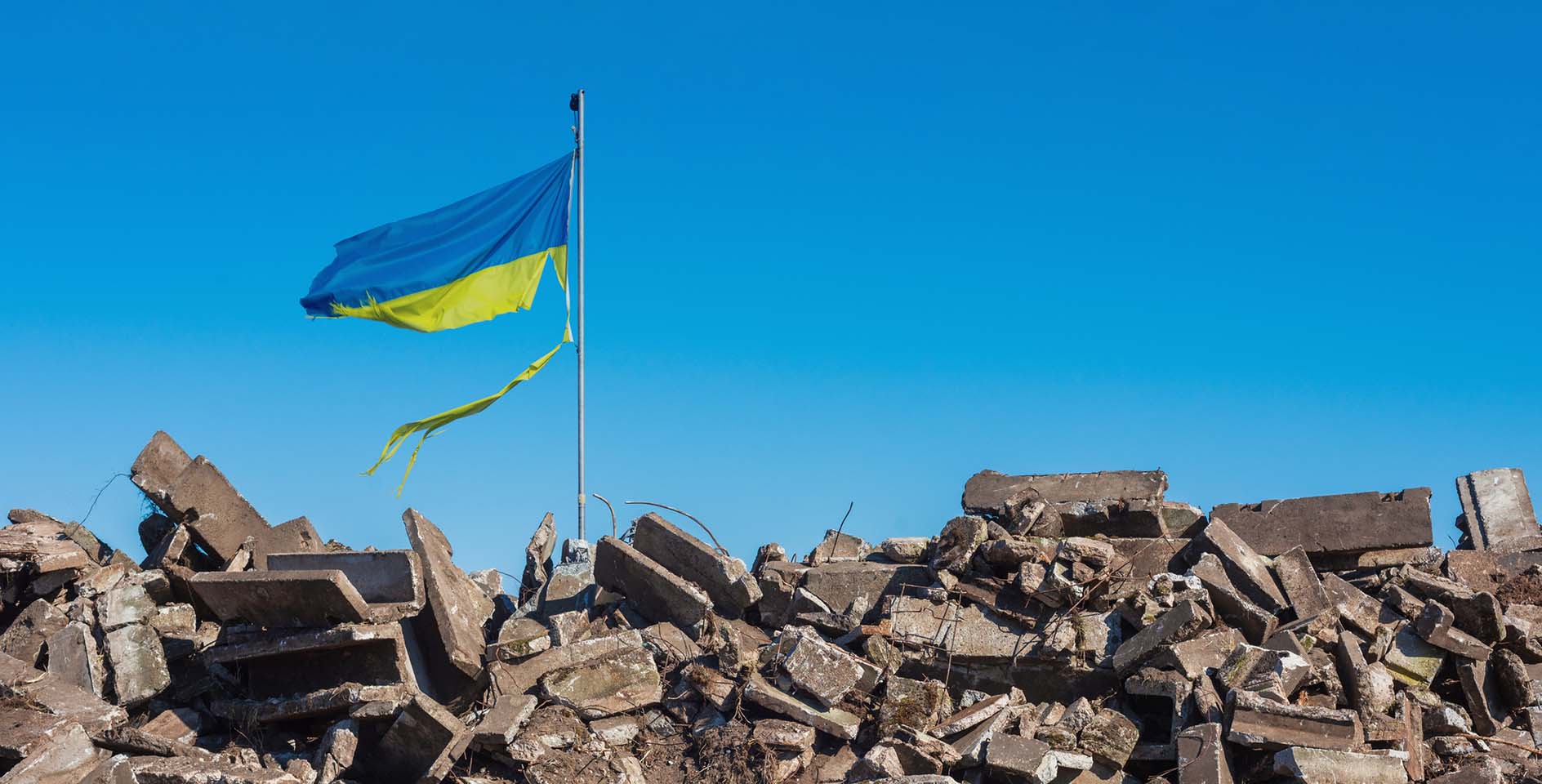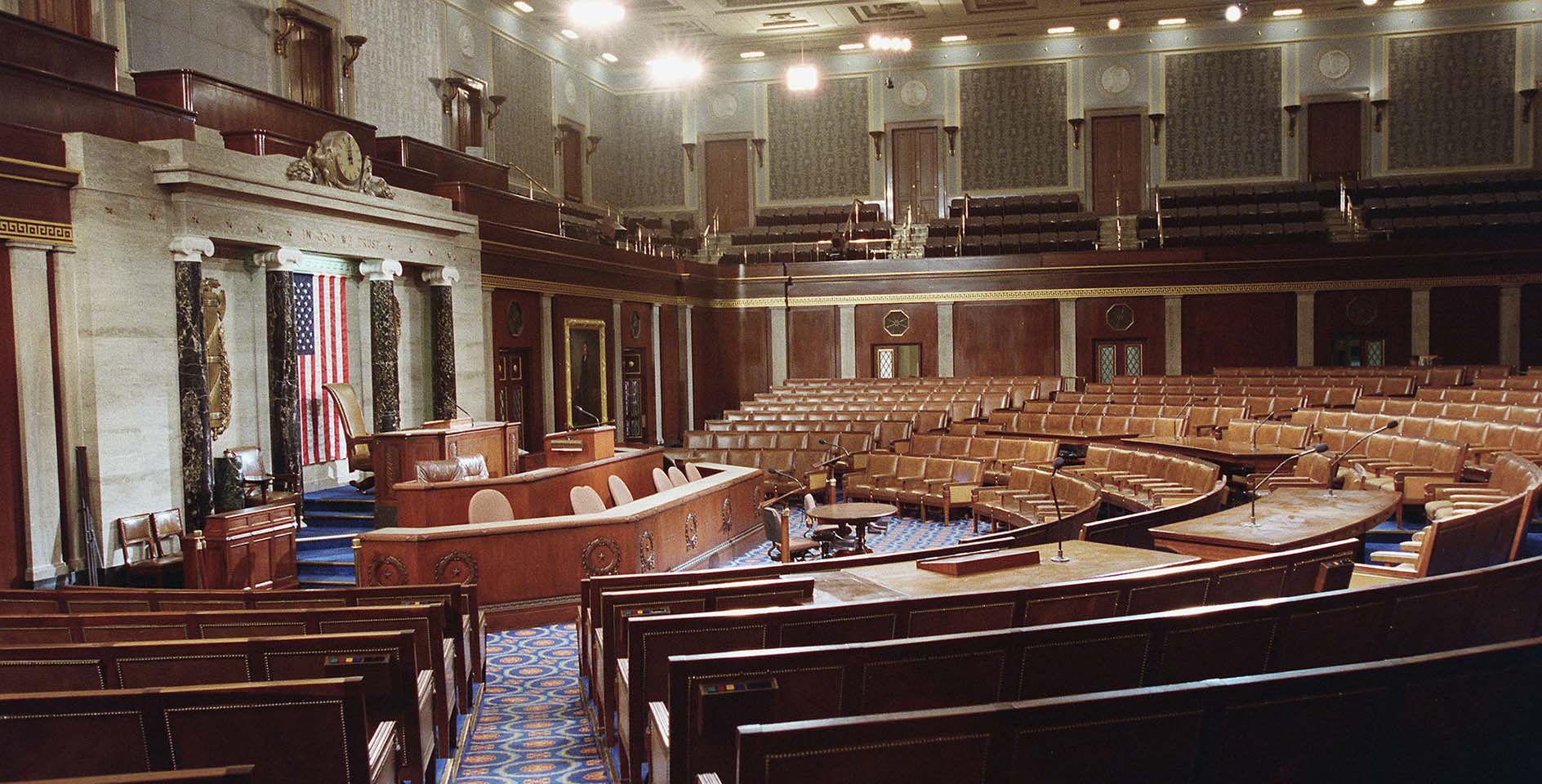If justice were to prevail in Ukraine, Russia would cease military operations, withdraw from the country, return Crimea and Donbas to Ukrainian control, publicly apologize, and provide restitution to Ukraine — and Vladimir Putin would resign the Russian presidency and turn himself in for a war crimes trial. Absent divine intervention, that will not happen. What, then, can we hope and pray for? What would a just end to the Russo-Ukrainian War look like?
In my recent book on just war, I stressed the importance of working to achieve justice and peace in, through, and after war. Many debates about just war focus overmuch on the justice of starting wars. Was it justified to invade or not? (Spoiler: no). But justice demands much more of statesmen than that they fulfill a short checklist of criteria, as if just war were designed to be a permission slip for invasion.
For a war to be just, it must result in lasting conditions of justice and peace in the aftermath — even if flawed and fallible, as all orders of justice and peace are in this fallen world. Russia cannot achieve justice in the aftermath of an unjust invasion, and whatever peace might befall Ukraine in the wake of a Russian conquest would be the peace of tyranny. As Tacitus said of the Romans, so too the Russians might succeed in creating a desert, and calling it peace. There is no justice in a Russian victory.
What do justice and peace look like for Ukraine?
The harder question is for the Ukrainians and the international backers who are providing it with weapons and moral support and waging economic war on Russia through sanctions. What kind of justice or peace can we achieve? Is any achievable? Do we have any reasonable chance of success?
That depends on the course of the war, and it is hard to say in advance what might happen. But we can think through some scenarios. One scenario might look like this: If sanctions hurt hard enough, and the Ukrainian military holds out long enough, Putin may decide to shorten the war and only hold on to small portions of eastern Ukraine and Crimea and pull back from the rest. He will have proven his point about his ability to hold Ukraine hostage — indeed, hold European security hostage — and could likely count on the Ukrainian government being effectively cowed into submission for the foreseeable future.
In that case, lasting peace may require Kyiv and its international backers to agree to some kind of permanent neutrality, as Finland and Austria agreed to after World War II. Ukraine’s president hinted at his willingness to consider such an outcome in the opening hours of the invasion. Neutrality would allow something like normal life to continue in Ukraine and reduce the likelihood of renewed fighting. It would also enable economic life to resume, along with international aid, investment, and development, helping Ukraine escape the trap of state failure and frozen conflicts.
Here is another scenario: Russia seems to win a quick victory, then gets bogged down in an intractable insurgency in western Ukraine and in the big cities. The war drags on for years and destroys much of Ukrainian infrastructure and civic life, yet in the end the Russians are forced to withdraw, much as they were from Afghanistan in 1989.
In that case, Ukraine would be whole, free, and seemingly at peace. It would also be shattered, impoverished, and dangerously prone to civil war between its pro-western half west of the Dnieper and its Russian-speaking population primarily on the east side.
In this scenario, justice and peace would require a much larger, longer, and more expensive international effort to bring Ukraine back into the family of nations. It would require billions in reconstruction and stabilization assistance, and possibly a U.N. monitoring mission to ensure Russia stays out and Ukrainians stay together.
How do we relate to Russia after the war?
In either scenario, the hardest part of the question is how the world should relate to Russia after the war. Just war requires justice and peace for all combatants, not just the victor or the victim. How do we work toward justice and peace with Russia when its government has been guilty of one of the most flagrant, dangerous, and lethal acts of international aggression in generations?
That will, again, depend on the manner of the war’s end and the Russian government’s behavior. Assuming Putin retains power and remains unrepentant, it is likely the United States and its allies will have to move toward something like the Cold War policy of containment. Keep sanctions in place, move to isolate and cut off Russia from the resources of the developed world, and work patiently — and peacefully, so far as possible — to limit and push back on Russian influence throughout the world. It will be a generational effort.
If Putin loses power — as Soviet leaders did in the aftermath of their defeat in Afghanistan — then the world has both greater opportunity and responsibility. The last time Russia went through a regime change, the world squandered the opportunity to help Russia transition to a more just, transparent, accountable regime that respects human rights and human dignity. Instead, Russia spent the 1990s deteriorating into a corrupt oligarchy, and the 2000s into a restored and rearmed authoritarian great power implacably opposed to the free world, all while the developed world took a holiday from history and lost two wars fighting terrorists in the Middle East and South Asia.
We should not aim at violent regime change in Russia — the stakes of provoking a nuclear power are too great. But if Putin brings himself down through folly and overstretch — and videos of anti-war protests across Russia in the opening days of the invasion suggest Putin’s grip on power is not as solid as he wants the world to believe — we will face one of the best opportunities in 30 years to help a great power move — at last — toward greater justice and peace. It would be a herculean undertaking, but to fail again would invite catastrophe.



